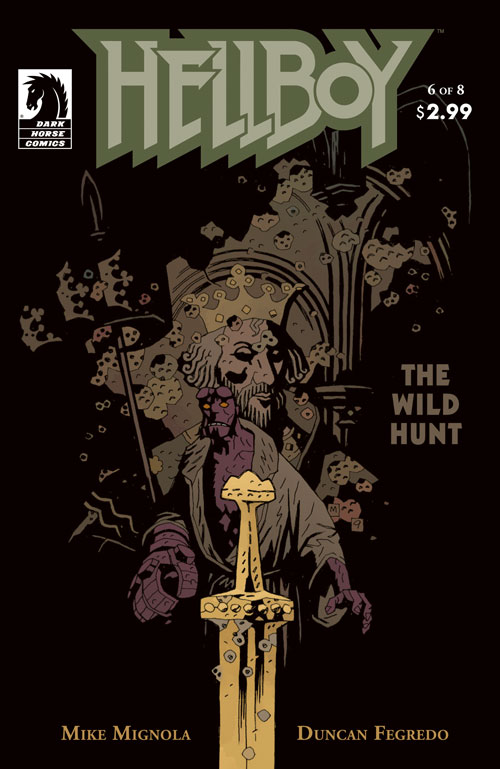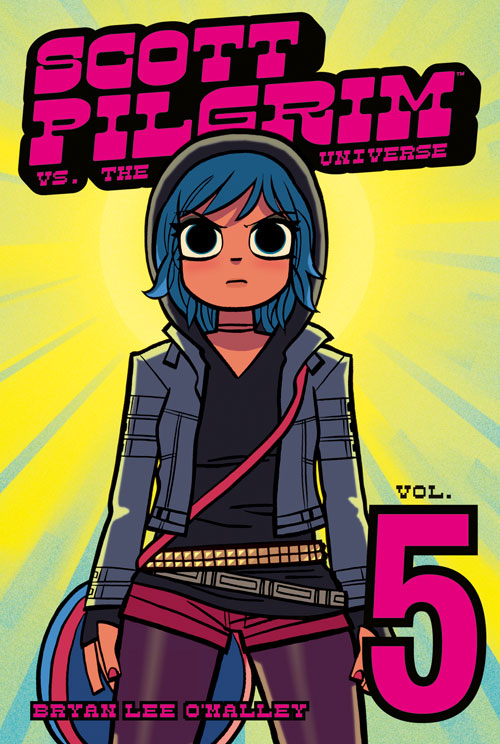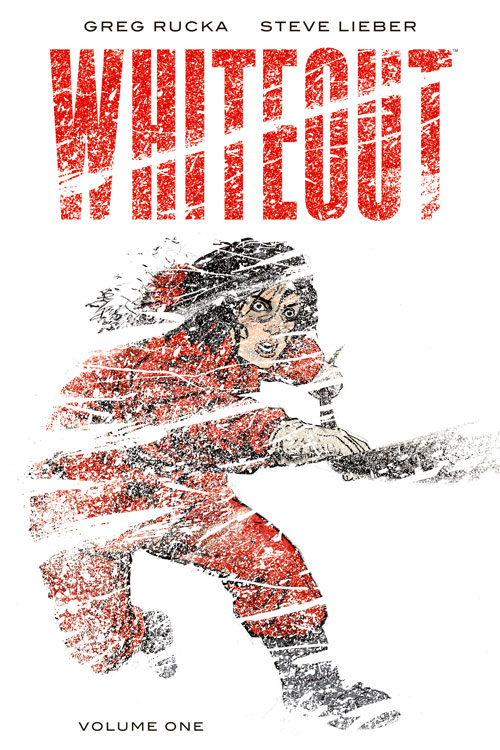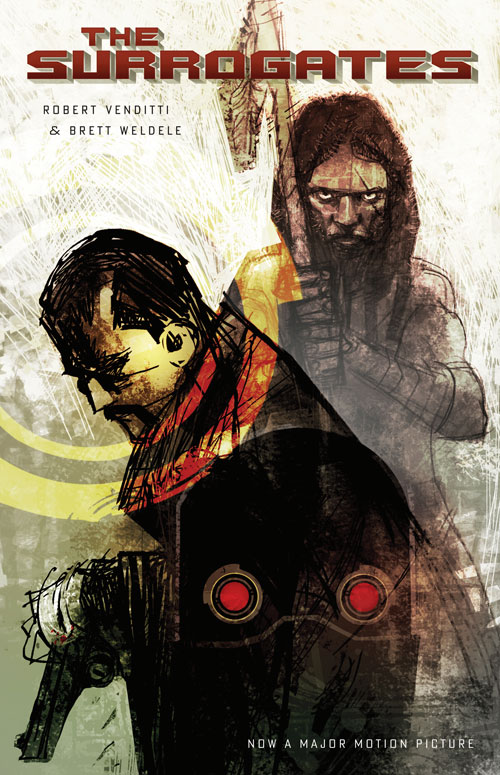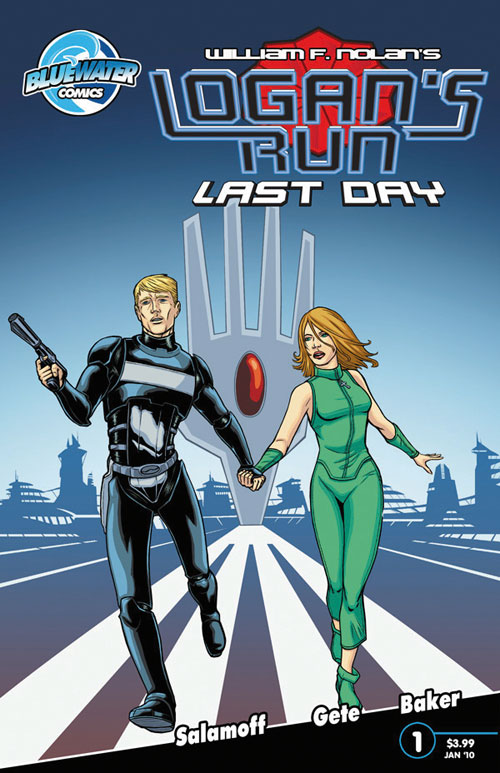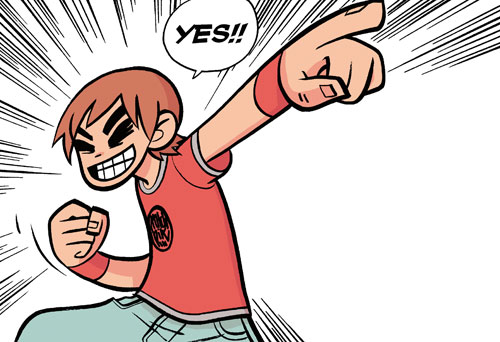 Mike Richardson never thought about whether Portland would work as a location to write, publish and produce comics. He just set up shop in the town where he was born and raised, worked at what he loved, and hit upon enormous success.
Mike Richardson never thought about whether Portland would work as a location to write, publish and produce comics. He just set up shop in the town where he was born and raised, worked at what he loved, and hit upon enormous success.
Geek-loving Portland has become one of the comic book capitals of the universe.
There’s a reason why Brian Michael Bendis isn’t in New York.
BY WILLIAM E. CRAWFORD
 | |
|
Mike Richardson never thought about whether Portland would work as a location to write, publish and produce comics. He just set up shop in the town where he was born and raised, worked at what he loved, and hit upon enormous success. Now after 23 years, his company, Dark Horse Comics, the third-largest comic publisher in the U.S., can comfortably call itself an industry giant. But he’s no longer the only game in town. A cluster of publishing houses and a hub of remarkable talent have been steadily growing since Dark Horse arrived, making Portland the unlikely West Coast capital of the industry.
Steve Lieber, the award-winning artist of the Oni Press Whiteout series, moved to “nerd tolerant” Portland in 1997 because his wife took a job at Multnomah County Library. Though he worked mostly in mainstream titles, he had no idea the city had such a strong comics scene. “You would have to put a gun to my head to get me out of this place,” he says, speaking by phone in early September just before the L.A. premiere of the film adaptation of Whiteout. “There are more cartoonists per capita here than anywhere in the Western hemisphere.”
Portland boasts at least seven innovative publishing houses, a literary agency that does nearly half its business representing graphic novelists, one of the largest independent comic book conventions in the nation, and the single largest collective studio in North America. It is also the city called home by some of the best-known artists and writers producing works in the medium today. Portland is a magnet for talent and innovation in all aspects of the industry — one that long ago expanded in audience, scope and themes beyond your run-of-the-mill muscled crime-fighter in a cape.
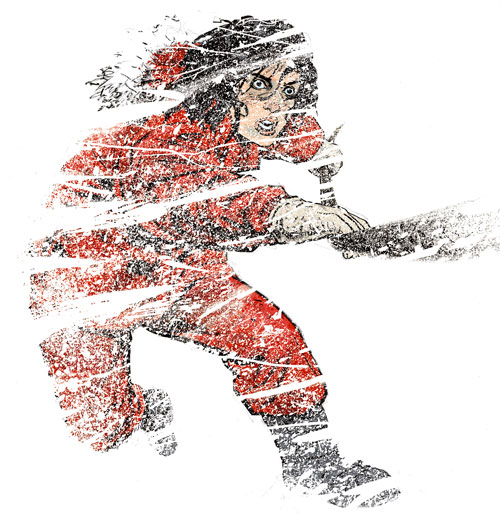 |
| Whiteout from Oni |
Kaebel Hashitani, president of the foundation for the not-for-profit Stumptown Comics Fest, estimates a full third of the U.S. comics industry now lives and works in Portland and grows by two to five more artists after each festival. “I think Portland embraces comics in a way the rest of the country doesn’t,” he says. “Portland lives comics year-round.”
So what drives the migration of the greatest minds in the industry to settle 3,000 miles away from its traditional capital of New York? Why does tiny Portland draw talent away from the larger West Coast cities?
Jason Leivian, owner of Floating World Comics in Old Town, thinks comics operate in a manner similar to indie music — another sector that thrives in Portland. While the smaller houses might not sell as much as the mainstream publishers, they are better positioned to market and support smaller-release volumes. The quality and passion they bring attracts a loyal fan base. Using the ample talent and interest found locally, small publishing houses can operate comfortably out of Portland.
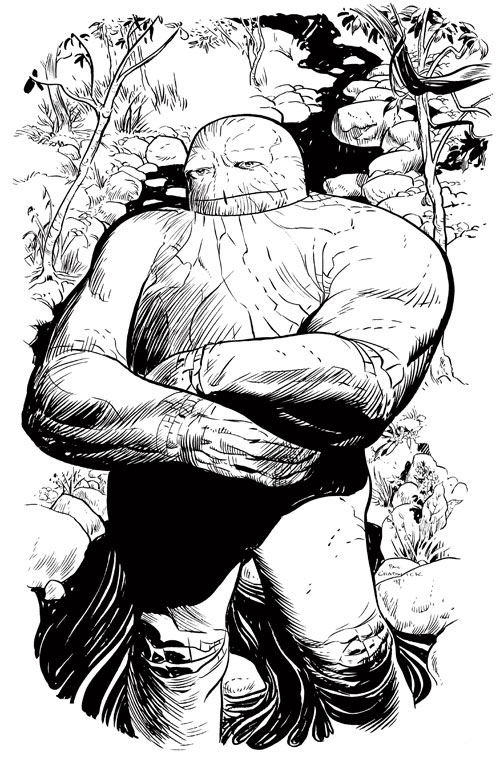 |
| Concrete from Dark Horse |
Joe Nozemack, co-founder of Oni Press, currently ranked the 17th-largest publisher in the industry, credits Portland’s concentration of comic talent in part to the creative community Portland has cultivated. “Only in the last three years has its visibility for graphic novels increased,” he says. But livability and an easy business environment play a strong role as well. Nozemack came from Houston to Portland and started Oni in 1997. “Portland is a great city for startups and the self-employed,” he says. “Since comic book [producers] and most creative types are independent contractors, it’s a great city for that.”
“From a publisher’s point of view, [Portland] is easily the second-biggest city and also has its own identity,” says Kuo-Yu Liang, a vice president at Diamond Comics Distributors, whose corporate offices are in Maryland. Diamond is the largest comic book distributor in North America, controlling the direct marketing in the United States.
“Portland is also the capital of ‘indie’ comics — not a surprise that one of the best comics conventions in the country [Stumptown Comics Fest] is in Portland,” he says. “Dark Horse, Oni and Top Shelf are easily considered three of the top five ‘coolest’ publishers.”
Bob Schreck, who originally came to Portland to work for Dark Horse and then co-founded Oni Press with Nozemack, left Portland in 1999 to work for D.C. But after working for several publishing houses, Schreck says he still pines for Portland. “The minute [artists] get there, people fall in love with it,” he says.
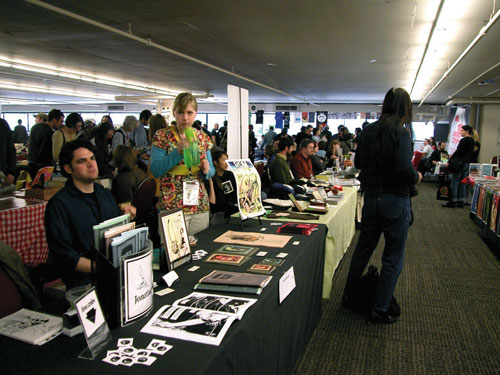 |
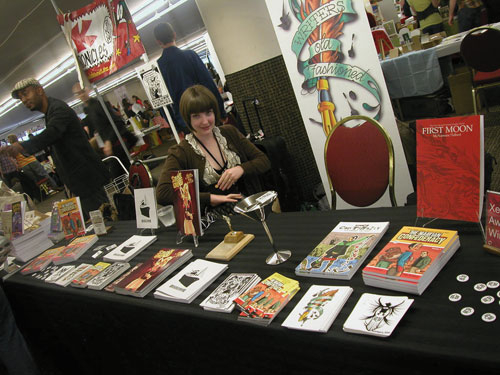 |
| PHOTOS COURTESY OF STUMPTOWN |
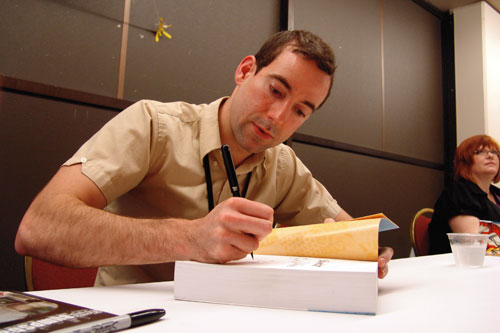 |
| PHOTO BY MARTIN GEE |
A good example of that strong cartoonist presence is Periscope Studio in downtown Portland. The largest of its kind in North America, Periscope describes itself as a collective of more than 20 cartoonists, illustrators, writers, concept designers, graphic novelists, and storyboard artists. But that description might sell itself short. The studio is a powerhouse of successful artists and leaders in their field. The studio has a constant waiting list for unpdaid internships. “There’s no substitute to being at the elbow of people doing it for a living,” says co-founder Ron Randall.
Randall says it’s undeniable that Dark Horse is a factor in much of the talent relocating here, but he believes the city itself is the main draw. “People come because it has a very livable lifestyle, is affordable and friendly to alternative lifestyles.”
He also points out that the city has a healthy film culture with revival and repertoire cinemas that rival those of the major cities. “And there’s a connection,” he says. “Anybody who draws comics loves movies.”
The presence of a studio such as Periscope in the center of the community, where mainstream artists cross-pollinate with independent and web artists, has created the right formula for supporting comic creators. “It can be a lonely business,” says Colleen Coover, who also works at the studio. Coover, who has drawn for X-Men, Spiderman and Oni’s Banana Sunday, says she and her husband, Paul Tobin, who also works at Periscope, could easily insert themselves into the established community. “I’m now a full-time freelancer, making a living,” she says. “Periscope was definitely part of that.”
| |||||||||||||||||||||||||||
| |||||||||||||||||||||||||||
Another one of Portland’s great industry assets is the Stumptown Comic Fest. Now entering its seventh year this April, the not-for-profit event and foundation was formed in 2004 to highlight creators rather than dealers and publishers, the usual focus of other conventions. The foundation also connects creators with subsidized or pro-bono legal aid. Last year, the event hosted 250 vendors, but if the trend holds true to previous years, that number will increase in 2010.
And it’s not just the independent artists who are coming to town.
“Brian Michael Bendis lives here!” says Jason Leivian, referring to the Eisner Award-winning (the Oscars of comics) writer of mainstream comic fame who pens The New Avengers and Ultimate Spider Man, among others. “He’s the new Stan Lee of the comic world.”
Mike Richardson makes no bones about why Portland is a comics hub. Once he established Dark Horse in 1986, he cultivated what would become legendary franchises and licenses, and started inviting creators to head west. What followed was a cascading immigration of talent that’s still under way today. “It’s a personal pleasure to see what I started here 25 years ago,” said Richardson. “That’s why I root for all the [local] publishers.”
Stumptown Comic Fest director Shannon Stewart agrees with Richardson, but believes he created something more important — a model that applies to smaller publishing houses that sprang up after Dark Horse set up shop in Milwaukie. “Dark Horse wanted to respect and take care of the creators,” said Stewart. “[Richardson] created a company based on creative rights.”
That appears to be common glue that surrounds local publishers — regardless of whether they had any intentions of licensing deals for which the Milwaukie company is so famous. They may be dwarfed by the largest companies like DC, Marvel, and even Dark Horse, but Portland’s more visible small houses such as Oni Press and Top Shelf Productions (partly located in Atlanta) are gaining in popularity and expanding into more lucrative areas like film.
Though not major critical or box office successes, Oni’s Whiteout and Top Shelf’s Surrogates — films with big-name actors and big-time budgets — show that Hollywood is interested in what Portland has to offer.
Many houses negotiate their Hollywood film options through their artists themselves or through an agent, but Oni took the step in 2003 to form a sister company, Closed On Mondays, to make sure their brands make it to the big screen. Whiteout may have been their first title to go all the way, but Scott Pilgrim Vs. The World, based on Oni’s most popular series, will be the company’s first production. Closed On Monday’s chief Eric Gitter, who Variety magazine featured last year on its list of 10 Producers to Watch, says there are now around 15 films based on Oni titles in various stages of development.
“Oni happens to have terrific taste,” he says. “They also happen to make me look good in Hollywood.” A typical deal will bring a sizable chunk of ticket sales and ancillary sales as well. “That means more book sales and more exposure,” he says “There’s always a tremendous spike in book sales.”
On board for the anticipated film adaptation are Edgar Wright (Shaun of the Dead) as director and Michael Cera (Arrested Development) in the lead role. “Oni did everything right with Scott Pilgrim,” says Stumptown’s Shannon Stewart. “That film will get them noticed.”
Easy living, a vibrant arts scene, a major studio and a foundation pulling for local production have put Portland on the map as a base to launch successful projects and publishing houses. “The sense of community here is the best,” says Jim Valentino, former publisher and co-founder of the Berkeley, Calif.-based Image Comics, the industry’s fourth-largest company. Valentino publishes Shadowline and Silverline, autonomous branches of Image, from Portland. “It wasn’t in Southern California and only somewhat in New York.”
But it takes more than just a comfortable town and a supportive community to create success. “Oni, Dark Horse and Top Shelf are all run by people who like comics,” says Dylan Williams, whose Portland-based company, Sparkplug Comic Books, gets frequently mentioned by local producers as the next house to watch. “That’s the secret — devotion to comics and caring about what you are doing.”


